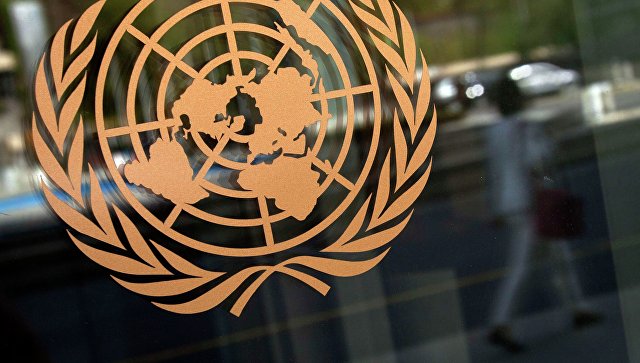Statement by Anna Evstigneeva, Deputy Permanent Representative of Russia to the UN, at the open VTC of UNSC members on UN peacekeeping operations
Mr. President,
We thank USG J-P.Lacroix for the briefing on the progress of UN peacekeeping reform and updates on pandemic-related problems.
We consider peacekeeping operations as a key UN instrument for maintaining international peace and security. UN missions are deployed in dangerous conditions, aggravated by dire humanitarian and socio-economic situations. Often they are accompanied by asymmetric threats. Combined with constantly changing nature and dynamic of conflict, all this asks peacekeeping mechanisms to adjust. Obviously, COVID-19 outbreak has impacted the ability of “blue helmets” to fulfil their mandates.
We highly appreciate efforts of the UN Secretariat to ensure safety of peacekeepers and mitigate the effects of the pandemic in peacekeeping missions, i.a. through enhancing their response capacity, improving medical service system, taking measures to mitigate the risk of COVID-19 spreading among the staff and during contacts with the civil population.
As host countries take action to contain the coronavirus, missions can render assistance upon request of national authorities and within their respective mandates. We believe positive examples in this regard are UN operations in the CAR and DRC that helped their host countries develop response plans for the pandemic.
Any changes to the rotation of the contingents must be implemented in close cooperation with troop-contributing countries (TCCs).
Mr. President,
Despite the current unprecedented circumstances, it is vital that the evolution of UN peacekeeping operations go the right way. Thereby it is absolutely imperative to respect sovereignty of host states, uphold goals and principles of the UN Charter, as well as basic principles of peacekeeping.
We are convinced that “blue helmets” must stay unbiased under any circumstances. As for robust or proactive mandates, Security Council can give them in each specific case depending on the situation on the ground.
It is the goal of peacekeeping to settle conflicts peacefully by political means. That is why we supported the call of the UN Secretary-General to a global ceasefire that ensured favorable background for continuing mediation in order to encourage national reconciliation among the conflicting sides. Despite some temporary pandemic-caused difficulties, we must by all means preserve the success that we already have in terms of implementation of peace agreements.
Constructive cooperation with host side is a crucial prerequisite for effectiveness of any peacekeeping mission. Amidst the pandemic it becomes even more important to build confidence and promote information exchange. It is dialogue that paves the way to ensuring timely access to basic necessity items, medical equipment, and medicines for peacekeeping personnel. It also takes dialogue to solve other urgent issues, including those related to prospective restrictions needed to contain the spread of COVID-19.
Besides, we believe it extremely important to take onboard views of host states and TCCs when addressing extension of mandates, and engage in consultations with them when elaborating recommendations of assessment reports with regard to effectiveness of peacekeeping missions. In particular, the UNIFIL mandate has been extended by a number of significant provisions related to sensitive aspects of modern technology (including UAVs and surveillance devices) that can touch upon sovereignty of the host state.
Such actions put extra burden on UN budget. In this regard, we see some controversy in positions of certain states that drive at extending missions’ mandates, and, in parallel to this, call to cut their funding and reduce staffing. Motto “Do more at less expense” can work in economic theory, but it can hardly be useful for enhancing efficiency of peacekeeping.
Optimization of mandates for the sake of efficiency should go along with canceling peacekeepers’ secondary and non-core tasks, especially those related to human rights, social and gender issues. Peacekeeping mandates should not be populist, but rather clear and realistic.
Mr. President,
We find it necessary to continue strengthening triangular cooperation between the UN Security Council, TCCs, and the UN Secretariat in order to sustain the spirit of partnership, cooperation and mutual trust. This approach is central to UNSG initiative “Action for Peacekeeping” which calls to close cooperation of all who take part in peacekeeping activity.
At its recent main session this year the GA Special Committee on Peacekeeping Operations (C-34) agreed that further promotion of A4P can be carried out as in accordance with views and recommendations of member states, i.a. those presented at the high-level event in September 2018. For these purposes, the structure of C-34 report was synchronized with A4P major thematic elements. We hope that recommendations and decisions of C-34 report will lay the basis for further activity of UN Secretariat at the peacekeeping track.
In conclusion, we would like to avail of this opportunity to express our appreciation to TCCs, as well as military and civilian personnel of UN peacekeeping operations for unwavering commitment to their duties, especially in current complicated circumstances.
Thank you.
